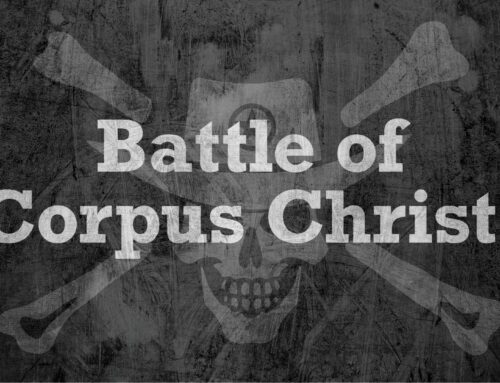West Columbia, Texas: The First Capital of the Republic of Texas
Introduction
West Columbia, Texas, holds a unique place in Texas history as the first capital of the Republic of Texas. Located in Brazoria County, this small town played a pivotal role in the early days of Texas’s independence from Mexico. This article delves into the history, cultural significance, economic impact, and future prospects of West Columbia, highlighting its evolution from a crucial political center to a cherished historical landmark.
The Founding and Early History of West Columbia
Establishment and Growth
West Columbia was established in 1826 by Josiah H. Bell, an early settler and empresario. Originally named Columbia, the town quickly became an important center for commerce and political activity in the region. Its strategic location along the Brazos River facilitated trade and transportation, making it a vital hub in early Texas.
Early Development
In its early years, Columbia thrived as a commercial center, attracting settlers, traders, and politicians. The town’s significance grew as it became a focal point for political and revolutionary activity, especially during the Texas Revolution against Mexican rule.
The First Capital of the Republic of Texas
The Birth of the Republic
West Columbia is most famous for being the first capital of the Republic of Texas. On October 22, 1836, the newly elected president of the Republic of Texas, Sam Houston, took his oath of office in Columbia. The town served as the capital for three months, during which time the government of the newly independent republic was organized.
Political Significance
During its brief tenure as the capital, Columbia was the site of important political decisions and events that shaped the future of Texas. The First Congress of the Republic of Texas convened in Columbia, laying the groundwork for the new nation’s governance and policies.
Cultural and Historical Significance
Varner-Hogg Plantation State Historic Site
One of the notable landmarks near West Columbia is the Varner-Hogg Plantation State Historic Site. This historic plantation, once owned by Texas Governor James S. Hogg, offers visitors a glimpse into the life and history of early Texas settlers. The site includes the plantation house, gardens, and several outbuildings, providing a comprehensive look at Texas’s agricultural heritage.
Columbia Historical Museum
The Columbia Historical Museum, located in West Columbia, is dedicated to preserving and interpreting the town’s rich history. The museum’s exhibits include artifacts, photographs, and documents that tell the story of West Columbia’s role in Texas’s early days as a republic and its subsequent development.
The Economic Impact of West Columbia
Early Commerce and Trade
In its early days, Columbia was a thriving commercial center. The town’s location along the Brazos River made it a crucial point for trade and transportation, facilitating the movement of goods and people throughout the region. This economic activity contributed to the town’s growth and prosperity.
Decline and Preservation
Following the relocation of the Republic of Texas’s capital to Houston and later to Austin, Columbia experienced a decline in political and economic importance. However, efforts to preserve and commemorate the town’s historical significance have ensured its legacy endures. Today, West Columbia is a small but vibrant community that honors its rich history.
Future Prospects and Development
Preservation Efforts
Ongoing preservation efforts aim to maintain and enhance the historical integrity of West Columbia. Local organizations, volunteers, and the Texas Historical Commission work tirelessly to restore and protect the town’s historical landmarks and artifacts.
Educational Programs
West Columbia offers a range of educational programs and events designed to engage visitors and promote a deeper understanding of Texas history. Living history demonstrations, reenactments, and educational workshops provide immersive experiences that bring the past to life for visitors of all ages.
West Columbia’s Vibrant Community
Festivals and Events
West Columbia hosts several annual festivals and events that celebrate its historical significance and community spirit. The Texas Historical Commission’s annual celebration of Texas Independence Day, celebrated on March 2, is a major event that includes reenactments, music, food, and educational activities. Other events, such as the Varner-Hogg Plantation’s holiday festivities, offer unique opportunities for visitors to explore the site in new and engaging ways.
Parks and Recreation
The West Columbia area offers numerous recreational opportunities for visitors. The scenic Brazos River and nearby parks provide ample opportunities for fishing, boating, hiking, and picnicking, making it a popular destination for families and outdoor enthusiasts.
Conclusion
West Columbia, Texas, is a site of profound historical importance. From its founding as a commercial hub to its pivotal role as the first capital of the Republic of Texas, West Columbia has left an indelible mark on the history of Texas. Today, it stands as a cherished historical landmark, offering visitors a unique glimpse into the past and a deeper understanding of Texas’s journey to independence. Whether you’re a history buff, a student, or a traveler, West Columbia offers a rich and engaging experience.
Call to Action
If you’re interested in learning more about West Columbia, Texas, and its fascinating history, visit The Jolly Outlaw. Explore our extensive collection of historical articles, discover the stories of Texas’s pioneers, and join our community of adventurers who celebrate the legacy of resilience and innovation. Start your journey into Texas history today!





